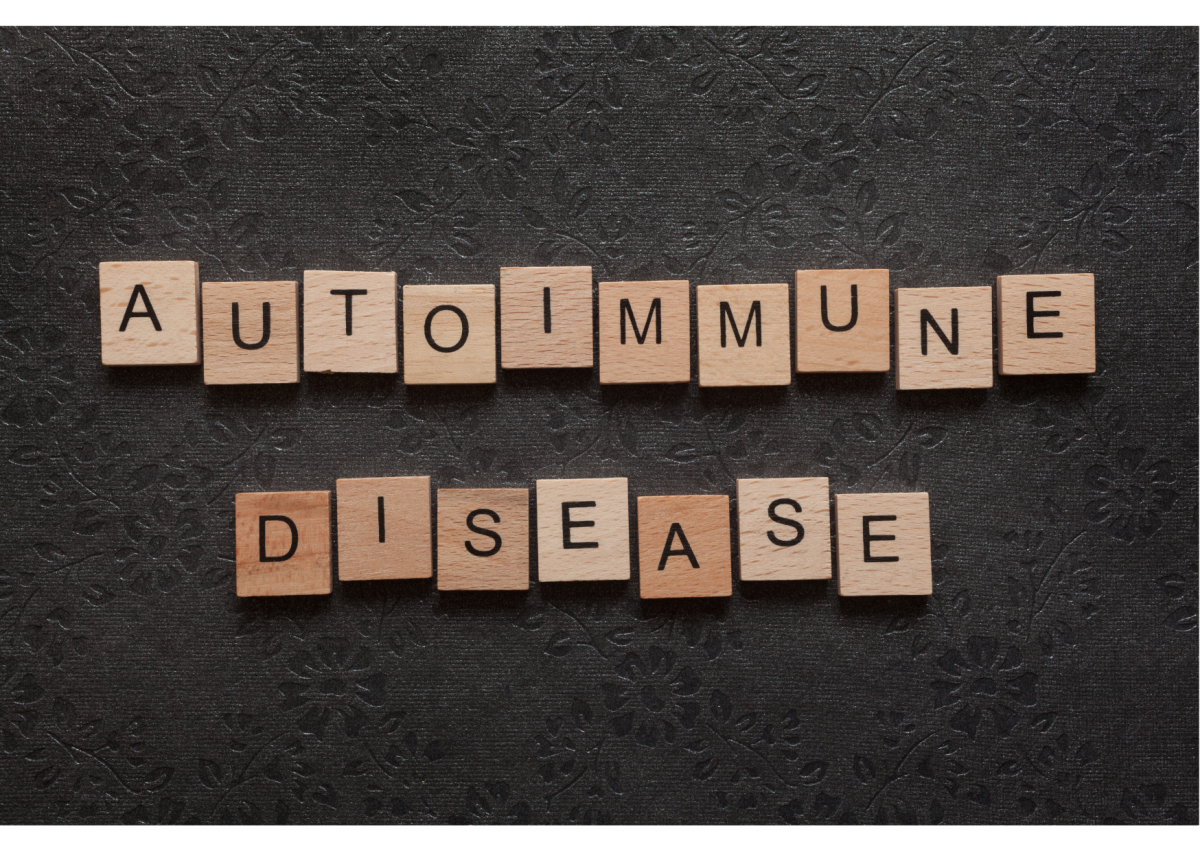Is IBS an autoimmune disease? Dietitian’s answer
- Lifestyle Advice
Have you questioned “Is IBS an autoimmune disease”? This article is for you!
Autoimmune diseases often involve a level of inflammation and impact your entire body. As IBS can also make you feel this way it is natural to wonder if there is a link.
This article will distinguish the difference between IBS and an autoimmune disease, and give you further information on the gastrointestinal symptoms that may arise.

What is IBS?
Irritable bowel syndrome (IBS) is a functional bowel disorder, meaning there are no structural abnormalities. It is not an autoimmune disease (1).
Having IBS can affect you from time to time, or more frequently. Symptoms can last for hours, days or weeks, depending on the individual.
You can experience a range of symptoms with IBS. These can include:
- Change in bowel habits
- Constipation, diarrhea or a mix of both
- Abdominal pain or discomfort
- Gas and bloating
- Fatigue
- Low mood (2)
For more information on the symptoms and causes of IBS – read ‘What are the symptoms and causes of IBS’.
There are a range of treatments available to help manage IBS. A combination of dietary changes, medications, lifestyle alterations and psychological therapies can all help.
Is IBS a chronic illness?
There is no cure for IBS. It is a lifelong condition and therefore it is considered ‘chronic.’.
If you think you might have IBS – check out How to get an IBS Diagnosis.
What is an autoimmune disease?
If you have an autoimmune disease, this means your body’s own immune system is attacking itself.
This breakdown can lead to your body attacking mostly healthy cells, tissues and organs (3).
Your immune system creates antibodies against viruses, bacteria, fungi, toxins and bad cells such as cancer cells.
When you have an autoimmune disease, your immune system cannot distinguish between the good and bad cells, so it can create an attack against these cells (4).
The causes of autoimmune diseases are unknown.
Causes can be due to genetics, exposure to infections or from certain medications such as statins or antibiotics which could confuse the immune system (4).
Certain risk factors that may develop an autoimmune disease may include:
- Smoking
- Obesity
- Assigned female gender at birth (78% of people with an autoimmune disease are female)
Exposure to toxins, such as air pollution (4).
Examples of autoimmune diseases
There are over 100 identified autoimmune diseases, but common autoimmune diseases include (4):
- Addison disease.
- Asthma.
- Type 1 Diabetes.
- Rheumatoid arthritis.
- Dermatomyositis.
- Graves disease.
- Hashimoto thyroiditis.
- Inflammatory bowel disease.
- Multiple sclerosis.
- Myasthenia gravis.
- Celiac Disease.
Autoimmune diseases can give rise to symptoms that mirror IBS. This is why it is vital that you are diagnosed accurately rather than self-diagnosing.
Is IBS an autoimmune disease?
No, IBS is not an autoimmune disease.
The symptoms of IBS can be similar to an autoimmune disease, so distinguishing the difference can be tricky.
Celiac Disease and Inflammatory Bowel Disease (IBD) are examples of autoimmune diseases, listed above. These present gastrointestinal symptoms, similar to IBS.
Is IBS linked to autoimmune diseases?
There is evidence to suggest that there may be a link between IBS and an autoimmune disease.
One study found that autoimmune diseases such rheumatoid arthritis and psoriasis may increase the risk of developing IBS (8).
There may be different peripheral pathways involved in the development of IBS, but you must consider that there are many contributing factors in IBS.
The link between IBS and autoimmune diseases is still being researched.

Celiac Disease – an autoimmune disease
Celiac Disease is an autoimmune condition and can be genetic.
When you have Celiac Disease and you eat gluten, your body will attack itself and produce antibodies against gluten ingestion (5).
A lifelong gluten free diet and lifestyle is the only available treatment.
Sometimes people with IBS are also advised to try a gluten free diet – found out more about when this is indicated – Does a Gluten Free Diet Help With IBS?
Both Celiac Disease and IBS can present with similar gastrointestinal symptoms, but they are two separate conditions. Read about IBS vs Celiac: what is the difference?
Inflammatory Bowel Disease
Is IBD an autoimmune disease? Yes it is.
Crohn’s Disease and Ulcerative Colitis are conditions that fall under inflammatory bowel disease (IBD) and are autoimmune conditions.
Crohn’s Disease affects any part of the digestive system, from the mouth to the anus. Some of these organs can become inflamed, leading to gastrointestinal symptoms (6).
Ulcerative Colitis usually affects the colon and the rectum, and these organs become inflamed causing gastrointestinal symptoms (7).
There are a few diet therapies that a dietitian can provide to help with your symptoms or a flare up.
There are also medications and medical or surgical management that can be considered by a GP or consultant.
Again, the gastrointestinal symptoms of both IBS and IBD can be similar. Read about The Difference Between IBS and IBD.
Summary
IBS is not an autoimmune disease, but rather a functional bowel disorder.
An autoimmune disease is when your immune system attacks itself and your healthy cells by mistake, and leads to various symptoms.
Examples of autoimmune diseases include Celiac Disease and IBD (Crohn’s disease and Ulcerative Colitis). These conditions present similar gastrointestinal symptoms as IBS.
You may be experiencing symptoms of IBS or an autoimmune disease. You can have both IBS and an autoimmune disease at the same time.
There are various treatments available for IBS, including diet therapy, medications, lifestyle changes and some psychological intentions, providing a holistic approach to care.